Skip to the content
Participant Details
- Community Arts Partner Name
- Arts Corps
- Partner Type
- 1
- Profile Photo
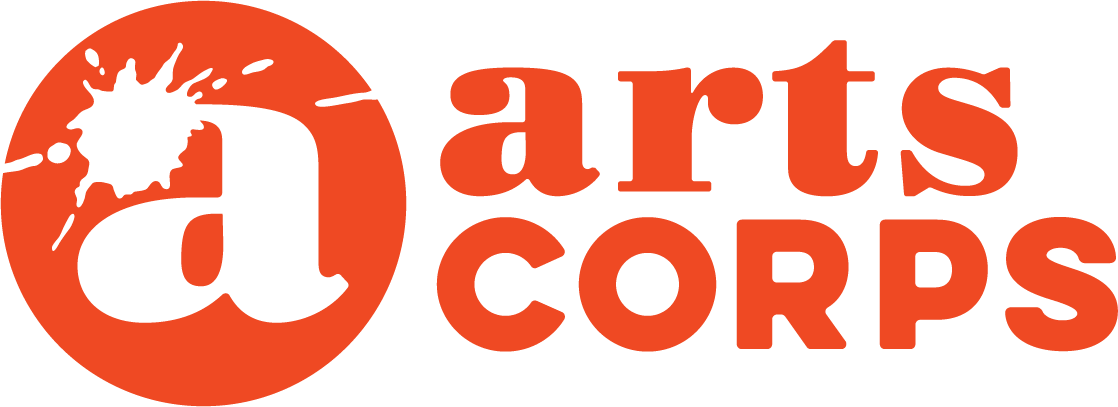
- Individual Bio or
Organizational Statement
Our Mission
Arts Corps revolutionizes arts education by igniting the creative power of young people through culturally engaging learning experiences.
Our Vision
We work toward a world where barriers to arts education no longer exist and all young people can creatively lead the transformation of schools, neighborhoods, and beyond.
Arts Corps is a nationally recognized youth arts education organization that works to address the race and income-based opportunity gap in access to arts education. Through participation in our arts integration, out-of-school arts and teen leadership programs, youth experience the transformative power of creativity and gain a deepened belief in their own capacity to learn, take risks, persist and achieve.
Arts Corps reaches over 2,500 K-12 students in South Seattle and South King County each year. Approximately 72% of our students come from low-income families and 84% are youth of color. Arts Corps is a force for justice in a region where race is greatest predictor of whether a young person has access to an arts education.
Arts Corps programs are proven to foster creative and critical thinking skills as well as sense of belonging, connection and mindsets for learning. Evaluation also suggests that Arts Corps students are more engaged in school and test better in reading and math, an important contribution to closing the achievement gap.
Arts Corps’ programs have been recognized locally and nationally for their quality. In 2012, Arts Corps was awarded the nation’s highest honor in community-based arts education by the White House, The National Arts and Humanities Youth Program Award. The City of Seattle also honored Arts Corps with the Martin Luther King, Jr. Award for commitment to the ideals of Dr. King, as well as the inaugural award for Excellence in Arts Education.
Our Values
Three core values shape and define our work at all levels of the organization, from the classroom to the boardroom.
Equity: In every aspect of our work, we are deeply committed to the cause of fairness, respect, and equality for individuals and communities. We recognize historic and systemic injustices and actively seek to dismantle them through our programs, in our organizational practices, and in our advocacy.
Collaboration: Working together is at the center of how we approach our work. Our best work and greatest insights are realized through the collective wisdom of diverse points of view coming together around shared goals. Collaboration requires communication, flexibility, humility and accountability. Collaboration is reflected at all levels of the organization, from the relationship of students and their teaching artist to the relationship of Arts Corps with our program partners and peers, as well as among our teaching artists and staff.
Creativity: In every action we seek to inspire—to stimulate the mind, the creative imagination, and emotions. We do this through our authenticity, our passion, and our commitment to reaching beyond our known capacities. It is our teaching artists’ capacity to inspire that motivates our students to take risks and grow, and it is our students’ passion, authenticity, and risk-taking that inspires us all to move forward.
Grade Levels Preferred
- Grade Levels Preferred
- K-2, 3rd - 5th, 6th - 8th, 9th - 12th
Artistic Disciplines
- Discipline
- Dance, 1, 2, 3, 4, 5, 6, Professional Development for Educators
- Type
- Dance: Capoeira, Creative Movement, African, Hip-Hop
Music: drumline, rhythm and percussion, choir, music production, and songwriting.
Poetry: poetry writing, and interdisciplinary classes such as lyrical hip-hop production and visual poetry.
Theatre: solo and ensemble performance, theatrical storytelling, mask, puppetry.
Visual Art: painting, drawing, ceramics, sculpture, cartooning, multi-media
Digital Media: photography, animation, stop-motion, filmmaking
Experience
- Previous School Partnerships
- Interagency Academies (SEIA, SWIA, IQA, UDCY, YEP, Beacon)
Chief Sealth High School
Martin Luther King Elementary
Hawthorne Elementary
Highland Park Elementary
Olympic View Elementary
Madrona Elementary
Orca K-8
TOPS K-8
McClure Middle School
- WA State TAT Lab Graduate
- Yes
- Other Trainings or Certifications
- Our teaching artists are trained in Culturally Responsive Pedagogy, Social-Emotional Learning, and best education practices. Many of our TAs have completed, and/or are currently on faculty with the WA State TAT Lab. We hold monthly paid professional development for our TAs as well as participate in national teaching artist ongoing professional development such as the Teaching Artist Project, the International Teaching Artist Collaborative, and present and attend at various national conferences. Our entire programs staff and leadership are also all working teaching artists with decades of experience and many master level degrees.
- Sample Lesson Description: Student / Classroom Residencies
- To see some of our lessons please visit: https://artscorps.org/programs/covid-19-online-learning/
- Sample Workshop Description: Teacher Professional Development
- Arts Integration
Arts integration is an approach to teaching where the arts is the vehicle for learning. Arts integration amplifies student choice and voice and provides multiple ways to access learning. Students learn about a content area and an art form, simultaneously, leading to deeper learning in the content area. Arts are not a sidealong, but woven into the fabric of the teaching. In this workshop participants are guided through a sampling of activities in visual arts, theatre, and music arts integration (arts discipline can also be tailored to the needs of participants). As participants, teachers experience the lessons and reflect on how they might implement them in their specific contexts.
Teachers will leave with tools to build curricula and utilize arts integration in their own classrooms both in day to day activities and in project based learning. They will have access to sample lesson plans that include standards in core subjects and the arts. In addition, they will gain a better understanding of how the arts support SEL learning and enhance 21st Century’s 4 Cs communication, critical thinking, collaboration and creativity.
Culturally Responsive Pedagogy
"Culturally responsive pedagogy (CRP) is defined as using the cultural knowledge, prior experiences, frames of reference, and performance styles of diverse students to make curricula more relevant and accessible for them. Culturally responsive pedagogy teaches to and through the strengths of diverse students. It is “validating and affirming.” -Geneva Gay
In this workshop participants discuss the background and history of Culturally Responsive Pedagogy and gain strategies to increase inclusivity, collaboration, and academic achievement through a CRP lens. Participants will be guided through a mini-lesson and reflect how CRP tools were used and how these tools could be applied to their own lessons. Teachers will leave with tools to raise personal awareness of bias in the classroom and to center youth culture and voice. Resources for locating and accessing youth culture will also be shared.
Decolonizing Our Curricula: Social Justice in Action
How can the arts help create systemic change in education? In this workshop participants will deepen their understanding of institutional oppression and its manifestations in traditional instructional models. Participants are guided through arts activities that invite them to reflect on their teaching practice and imagine ways that theatre and art can be used to center their students in the learning process. In the process teachers identify one or more ways they can use the arts to decolonize their curriculum. Teachers will take away arts activities that foster environments of unconditional acceptance and pave the way for critical dialogue in their classrooms.
Areas of Experience and Expertise
- Approved Professional Development Provider
- Yes
- Approved Classroom Residency Provider
- Yes
Teaching Approach
- Teaching Philosophy + Approach
- See more about our Arts Corps Race and Social Justice Framework here: https://48kyrx1shbnt4fkrzl10d6zc-wpengine.netdna-ssl.com/wp-content/uploads/2021/01/SJF.pdf
Teaching artists are key resources and providers of high quality arts education experience for youth. Teaching artists guide students through a creative process with a primary focus is on developing youth voice and creative habits that support lifelong learning. We only hire the best and invest in their success by providing ample professional development.
Safe, supportive spaces are essential. Teaching artists actively work to create supportive environments to promote active learning, skill building and healthy relationships. Teaching artists model creative risk-taking, promote the expression of ideas, and make room for young people to show up in their full identities. Students are engaged in the class, participate in making choices and planning, and reflect.
Arts Corps works in partnership with communities. Each site we work with has different needs, goals and youth. In order to develop and deliver the best quality class for each program partner, we work collaboratively to develop shared goals and agreements.
Programs must be continuously evaluated. Arts Corps conducts a rigorous evaluation each year, the process and findings of which help us measure the effectiveness of our programs.
- Curriculum Integration Possibilities
- Arts integration is an instructional approach for teaching a subject matter through and with the arts. It requires collaboration on the part of teaching artists, teachers and school leadership. Arts Corps endeavors to implement high quality arts integration that is most closely aligned with a collaborative integration model. Under this model a teacher and a teaching artist plan together and work together closely. This approach often includes process connections, where both partners emphasize common processes between their subjects, as well as conceptual connections. Because both instructors are proficient in their subject matter/art form, this approach has the potential to create exceptionally rich learning experiences for the students.
Arts Corps classes may be integrated with multiple subject areas, including but not limited to the following:
- Language Arts (Visual Arts, Poetry, Theatre, Music)
- Social Studies (Visual Arts, Poetry, Theatre, Music)
- Science (Visual Arts, Poetry, Theatre, Music)
- Math (Visual Arts, Music, Theatre)
- Gym (Dance)
Example: A music teacher and a science teacher plan a unit on patterns of movement in astronomy and music. Together they develop a project where students will learn about the planetary movements, as well as different parts and patterns in musical compositions.
- Special Skills and Areas of Expertise
- Cultural Bridge: Arts Corps' cultural arts residencies cover a spectrum of art forms that connect to the home cultures of our students including African drumming and dance, Afro-Brazilian dance, Hip Hop, Capoeira, and spoken word poetry. Teaching artists create lesson plans that promote cultural awareness while allowing room for flexibility based on class dynamics.
Educator Professional Development: Our trainings provide educators with hands on activities and strategies for high quality arts instruction or integration as well as evaluation and assessment of 21st Century skills. Our trainings are co-facilitated by master-level teaching artists and program staff who customize sessions to meet participant needs. Topics covered include arts integration models, culturally responsive pedagogy, decolonizing the classroom, fostering and assessing creative habits of mind/21st Century skills, effective co-teaching, creative classroom management, and cultivation of academic and growth mindsets. Arts Corps recognizes that that there are systemic barriers that create unequal access to arts education, and often there are also oppressive dynamics at play in classroom instruction that can further alienate students. Based on this understanding, Arts Corps trainers work with teachers to explore culturally responsive arts integration strategies through the process of merging creativity and arts tools with an anti-oppression framework and application. See above for more detailed session descriptions.
- Testimonials from Schools
- "I'd have to say that's a highlight for me when I see the students looking at each other's art and asking questions about it and engaging in conversation about the art." - Interagency Teacher
"Sister Sumaya connected so well with the students. They listened and participated for an hour which can be rough with 2nd grade. They loved the drumming, dancing, singing and the poetry. Her program was so well rounded to meet the needs of all the students. She truly was amazing and I would love to have her back next year. Thanks for such a wonderful experience for my students and myself. The Arts Night performance was so wonderfully done. The students and the audience was engaged and participating. A truly remarkable evening." - Hawthorne Teacher
"Mr. Greg is an amazing teaching artist and that relate to our Kindergarten students. He does not dumb any of the information down for them but is able to relate it to them and talk about it at a level they can understand. He encourages all students that they are artists and provides a positive environment for students to explore." - MLK Teacher
Fees
- Fees
- Arts Corps prioritizes serving students from low-income backgrounds. We prioritize working with schools with at least a 60% Free and Reduced Lunch percentage.
Costs per class: $199/hour with subsidized rates available for some schools from starting from $125. Includes all supplies, teaching artist planning, and programatic administrative support. Please email for more specifics
Professional Development rates:
$500 per hour per facilitator
Images
- Image
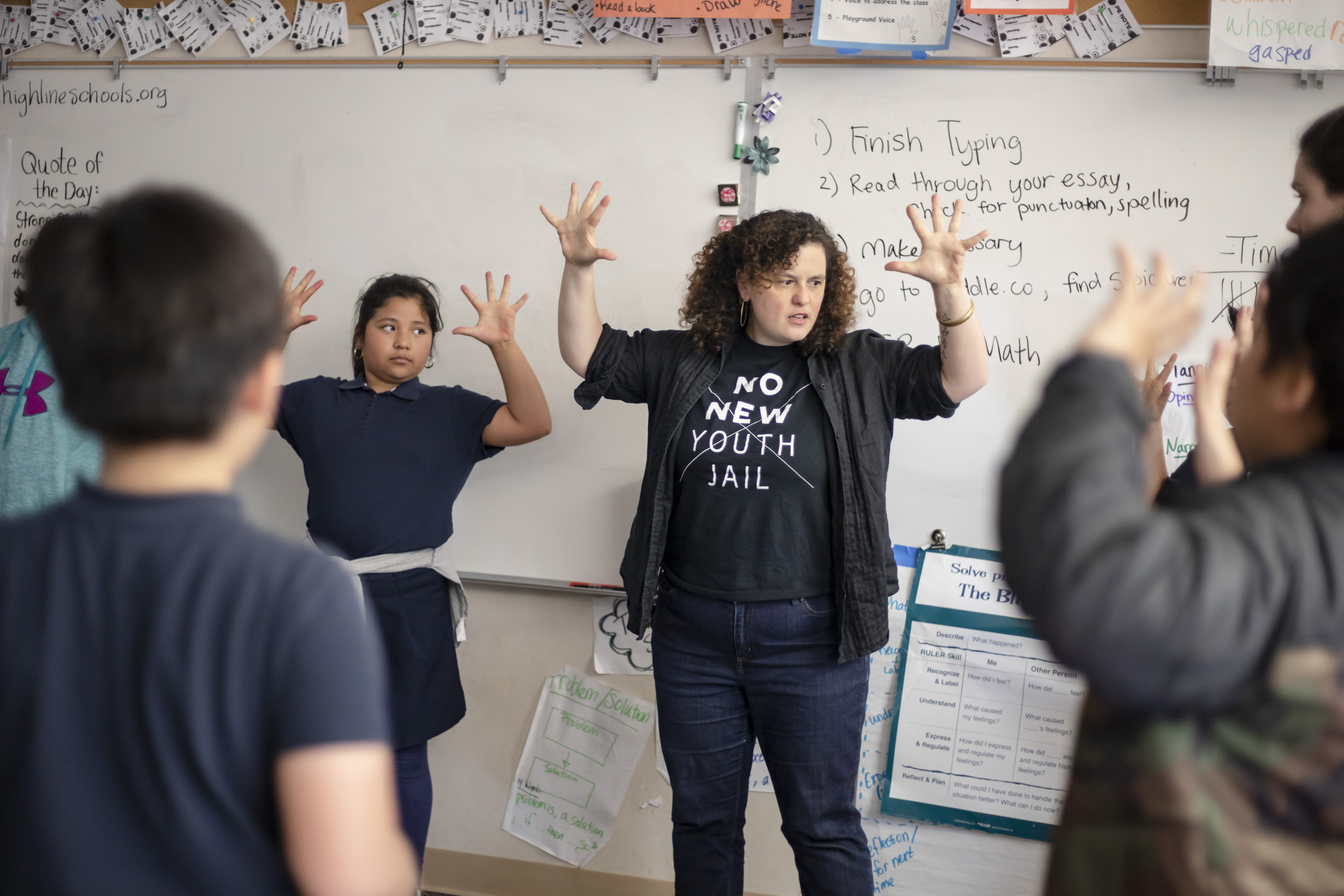
- Image Description
- Theatre and Language Arts Integration residency, 2018-2019
- Image
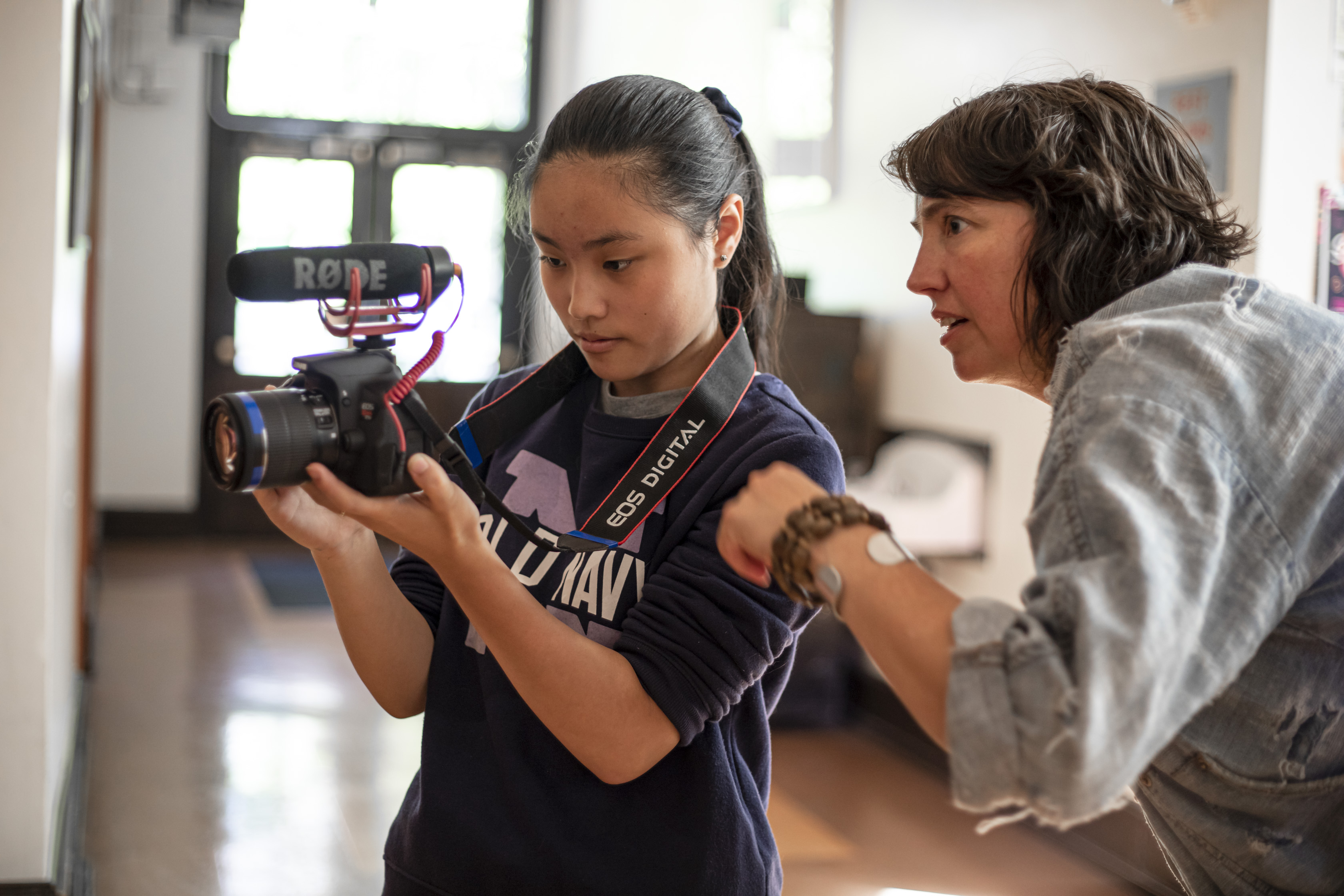
- Image Description
- Arts Leadership Liberation Institute Teen Summer Program 2019
- Image
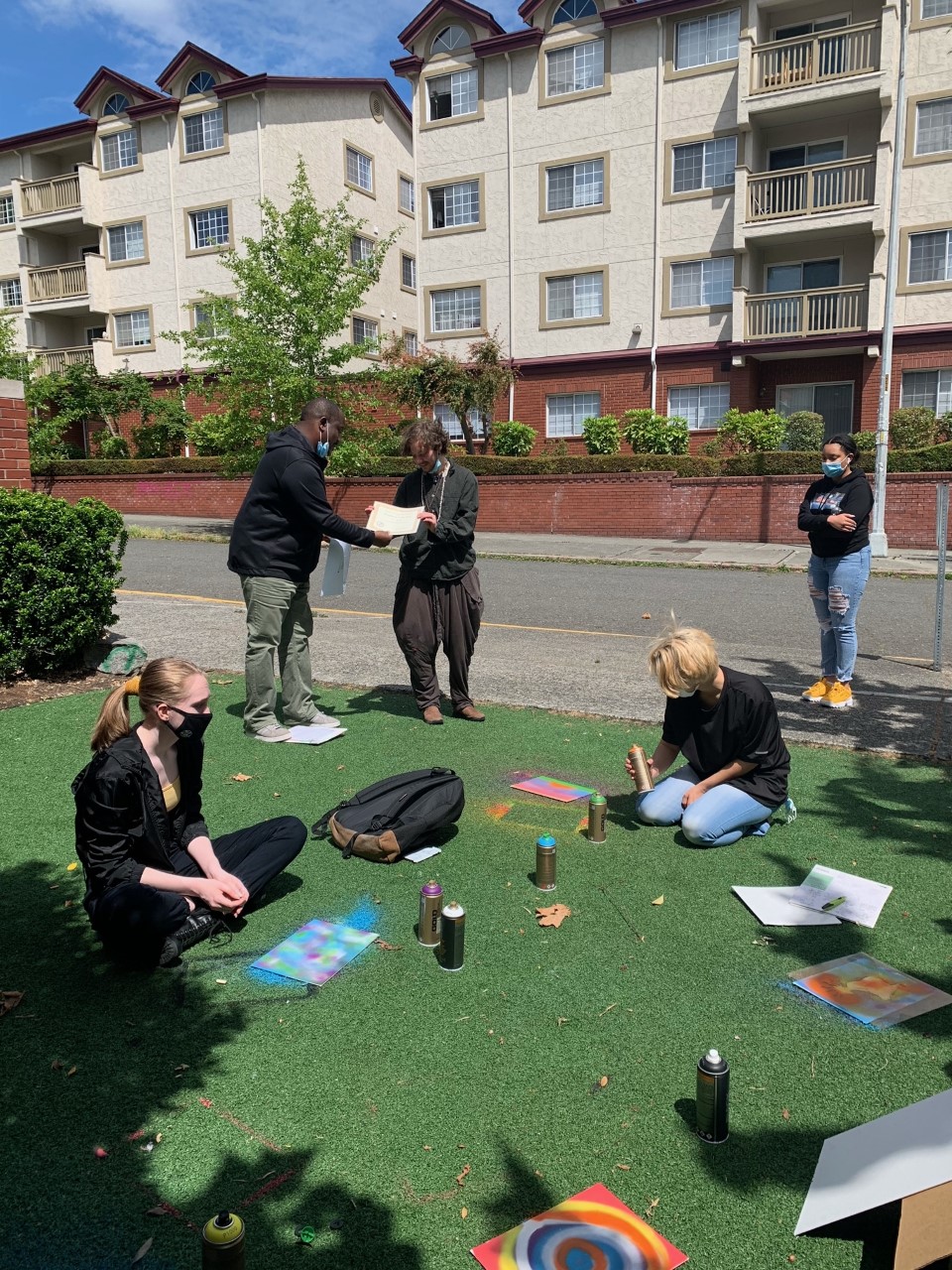
- Image Description
- Spray Painting Visual Arts activity UDYC Interagency Academy 2021
- Image
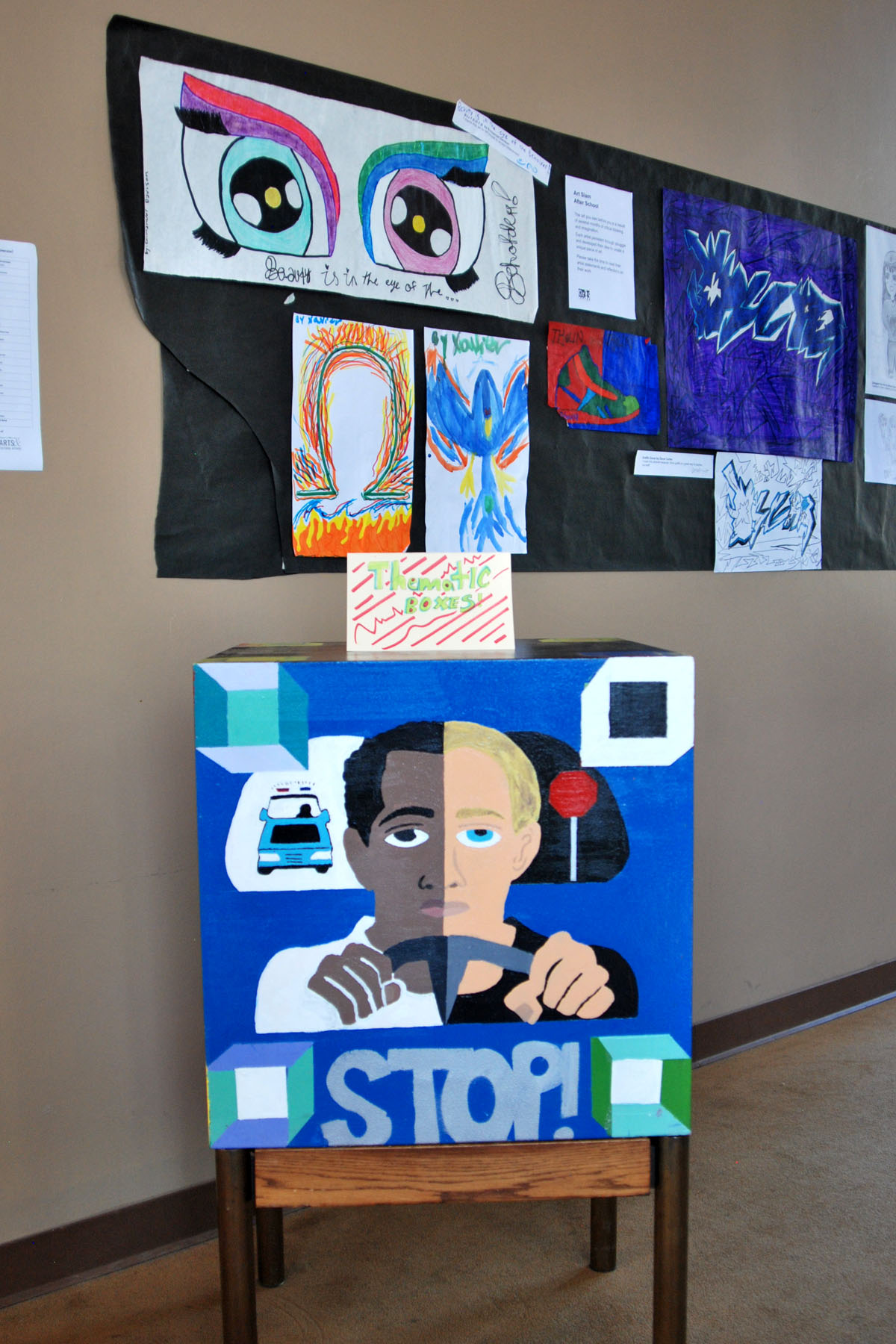
- Image Description
- Visual Art Exhibit, Arts Corps Creative Schools Initiative, 2013
- Image

- Image Description





